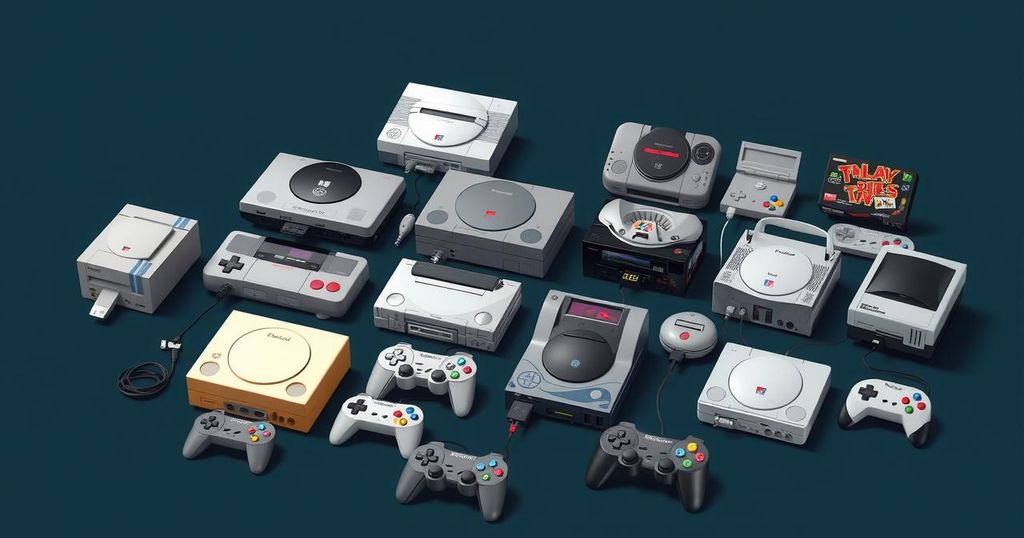Sony celebrates three decades of its PlayStation console, initially launched on December 3, 1994. The PlayStation became a revolutionary force in gaming, selling over 102 million units and appealing to a more mature audience with successful franchises. While facing competition and market challenges, Sony continues to innovate, with recent developments in gaming technology signaling a promising future for the PlayStation brand.
Sony, the renowned Japanese electronics manufacturer, is commemorating the 30th anniversary of its iconic PlayStation console, originally launched in Japan on December 3, 1994. This small grey box not only established Sony’s presence in the gaming industry but revolutionized it, selling over 102 million units globally. The original PlayStation was significant in broadening the gaming demographic, targeting older audiences with innovative titles and marketing strategies. Amidst competitive pressures from other companies, including Nintendo and Microsoft, the PlayStation brand continues to evolve, recently introducing advanced features in the PlayStation 5 and exploring the handheld gaming market again.
The legacy of the PlayStation began with a critical partnership failure, as Sony’s collaboration with Nintendo to create a CD-equipped Super Nintendo console was abruptly terminated. This prompted Sony to independently develop the PlayStation, which utilized CD-ROM technology, offering greater storage and more affordable game media than traditional cartridges. Focusing on a more mature gaming audience, Sony successfully marketed titles such as “Tekken,” “Resident Evil,” and “Metal Gear Solid.”
As PlayStation celebrates its milestone, it also faces challenges in an increasingly competitive gaming landscape. Companies like Microsoft and Nintendo remain influential, and emerging technologies such as cloud gaming threaten traditional consoles. Furthermore, the pandemic-induced boom in gaming has waned, leading to workforce reductions within Sony. Despite these hurdles, the company remains optimistic, with ongoing developments in gaming technology and a forthcoming handheld console announcement that could reignite its rivalry with Nintendo. The introduction of groundbreaking 3D graphics enabled the PlayStation to create distinct gaming experiences, enhancing emotional engagement for players.
The article discusses the significant impact of Sony’s PlayStation, which marked its 30th anniversary in 2024. The console’s release transformed the gaming industry, overcoming early challenges and solidifying Sony’s status in a competitive market dominated by established players like Nintendo. The evolution of gaming technology and changing consumer demographics played critical roles in the PlayStation’s success, demonstrating the console’s lasting legacy. Despite recent industry challenges and criticisms of traditional gaming models, Sony’s innovative approach continues to shape the future of video games.
In conclusion, the PlayStation’s 30-year journey showcases its transformative impact on the gaming industry. From overcoming initial hurdles with innovative technology to targeting a broader audience, Sony’s console remains a cultural and commercial phenomenon. As the gaming landscape evolves with new technology and competition, the PlayStation brand is poised to adapt, ensuring its place in the future of entertainment.
Original Source: jordantimes.com






